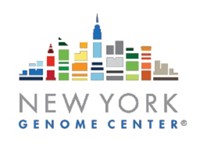Advertisement
Grab your lab coat. Let's get started
Welcome!
Welcome!
Create an account below to get 6 C&EN articles per month, receive newsletters and more - all free.
It seems this is your first time logging in online. Please enter the following information to continue.
As an ACS member you automatically get access to this site. All we need is few more details to create your reading experience.
Not you? Sign in with a different account.
Not you? Sign in with a different account.
ERROR 1
ERROR 1
ERROR 2
ERROR 2
ERROR 2
ERROR 2
ERROR 2
Password and Confirm password must match.
If you have an ACS member number, please enter it here so we can link this account to your membership. (optional)
ERROR 2
ACS values your privacy. By submitting your information, you are gaining access to C&EN and subscribing to our weekly newsletter. We use the information you provide to make your reading experience better, and we will never sell your data to third party members.
Business
New York City biotech scene gains more traction
Quentis Therapeutics and Kallyope raise funds as the city promises additional lab space
by Ryan Cross
March 1, 2018
| A version of this story appeared in
Volume 96, Issue 10

More money is heading to the budding biotech scene in New York City, which has often been overlooked compared with the biotech hotbeds of Boston and San Francisco. Cancer immunotherapy start-up Quentis Therapeutics has launched with $48 million, and gut-brain start-up Kallyope raised $66 million in series B funding.
Quentis is developing small-molecule inhibitors of IRE1, an enzyme that is overactive in some cancers. The company is based on research done in Laurie Glimcher’s lab when she was dean of Weill Cornell Medicine. She is now CEO of Dana-Farber Cancer Institute.
Kallyope, which launched with $44 million in December 2015, was founded by three Columbia University scientists to map the neural circuits that link the gut to the brain. Kallyope is beginning to develop small molecules that target these circuits to treat metabolic disorders like obesity and liver disease and central nervous system conditions such as Parkinson’s disease and mood disorders.
“I don’t think we’ve been disadvantaged at all by not being in a biotech hub. From a recruiting perspective it is an untapped talent pool of scientists,” says Kallyope CEO Nancy Thornberry. “Historically, the most significant obstacle for biotechs in NYC has been space.”
Both start-ups are currently based in the relatively new Alexandria Center for Life Science. Since Thornberry joined Kallyope just over two years ago, the company has expanded from six people to more than 40. The firm has already outgrown its space once, and Thornberry says Kallyope is looking to move to an even larger space, though it doesn’t plan to leave the city.
The NYC biotech scene “is at a tipping point,” says Quentis CEO Michael Aberman. “The academic institutions and access to capital are obviously here.” And lab space could start becoming more common thanks to some help from the city.
In January, the New York City Economic Development Corp. announced the city would offer up to $100 million to build the Applied Life Sciences Hub, which development corporation CEO James Patchet envisions as a “Bell Labs for biotech.”
New York is also providing $17 million to help Johnson & Johnson launch its new JLabs biotech incubator at the New York Genome Center. The space, which will house up to 30 start-ups, will open in June.




Join the conversation
Contact the reporter
Submit a Letter to the Editor for publication
Engage with us on Twitter